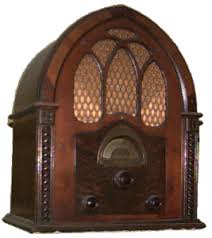Next month, my biography of writer Richard Durham will be published and ready for you to enjoy. Talk about excited!
In the following audio sample from Durham’s award-winning Destination Freedom radio series about accomplished African Americans, a Chicago-based doctor named Ulysses Grant Daley (played by actor Fred Pinkard) gets ready to perform an emergency, and at the time rare, open-heart surgery on a patient suffering from a life-threatening heart wound.
As I wrote in Word Warrior’s Prologue (and included in full below), after hearing dramas like this:
I couldn’t move from my chair. I wanted more.
Flipping the cassette tape to side B, I pressed the machine’s play button and sat back. Amazing! I thought when the second show finished. Those episodes from a radio series called Destination Freedom were captivating and surprisingly fresh, even though they had been produced nearly 50 years earlier.
I soon discovered that these and other Destination Freedom episodes proved that however limited, black Americans produced or starred in some fascinating, or as in Durham’s case, downright revolutionary radio broadcasts during the racially segregated and blatantly discriminatory America of the late 1940s and early 1950s.
In fall 1994 I had just started working as a writer/producer for the Smithsonian Institution’s Black Radio: Telling It Like It Was project – a 13-part series exploring the legacy of African Americans in radio. The Smithsonian’s National Museum of American History in Washington, D.C. housed a unit that produced award-winning radio and television documentaries about the American experience. Black Radio’s production team, headed by series creator Jacquie Gales Webb, hoped to continue the Smithsonian’s record of broadcast excellence.
Starting in January 1996, our weekly half-hour Black Radio programs aired on more than 200 noncommercial radio stations nationwide. Later, XM Satellite Radio carried the series.
Of the five shows on my producing plate, I felt the most trepidation about the one exploring African American contributions during radio’s “theater of the mind” heyday of the 1930s and ‘40s. Blacks were rarely featured in local or national dramatic broadcasts then. So the more information I unearthed about Destination Freedom, the more I was struck by this series’ lyricism, dramatic flair and fiery rhetoric.
African American writer Richard Durham created this series in 1948 and served as its sole scriptwriter. A master storyteller, Durham seductively conjured aural magic, inventively dramatizing the lives of black history makers. And Durham used his desire for universal freedom, justice and equality to inform his storytelling choices.
But just who was Richard Durham?
Durham had died in 1984, so my interviews with his wife Clarice, actor/singer Oscar Brown, Jr. and writer Louis “Studs” Terkel provided salient insights. Durham appeared to have been an astute, Chicago-based writer who employed poetic, hard-hitting prose to entertain, educate and promote positive social change.
He stood behind his convictions, even when the consequences of his actions caused him emotional pain, financial hardship – or both.
Durham’s life was drama itself; full of unexpected twists and turns, of creative invention and reinvention. A few historians, like J. Fred MacDonald and Barbara Savage had explored the significance of Durham’s Destination Freedom dramas. Yet I wondered why no one had written a book-length account about the totality of Durham’s contributions and advocacy.
Dare I write such a book?
Durham’s story certainly fascinated me. His accomplishments reinforced my own belief that the media, in all its incarnations, should serve a higher purpose than just mindless diversion. So after the Black Radio series ended, I planned to work on Durham’s biography. Unfortunately, other documentary projects monopolized my time.
I also continued teaching in my academic home, the Howard University Department of Radio, Television, and Film. Appointment to an administrative position in my department eventually forced me to sandwich research for this book into spring or summer breaks, and other far too fleeting time frames.
Still, a Howard University-sponsored research grant in 2002 enabled me to start immersing myself in Durham’s world. Later, a 2009 Timuel D. Black Short-Term Fellowship in African American Studies sponsored by the Vivian G. Harsh Society enabled me to spend a summer in Chicago. I practically moved into the Woodson Regional Library, home base of the Harsh Research Collection of Afro-American History and Literature where Richard Durham’s papers reside.
Finally, a sabbatical from my university during the 2010-2011 academic year allowed me to make significant progress toward the completion of this book.
I have strived to faithfully represent Durham’s writing and his life, and I hope that you will be equally as inspired by his compelling story and activism.
To celebrate what will be Richard Durham’s 98th birthday and Word Warrior’s arrival, please come back next month for more book excerpts.
